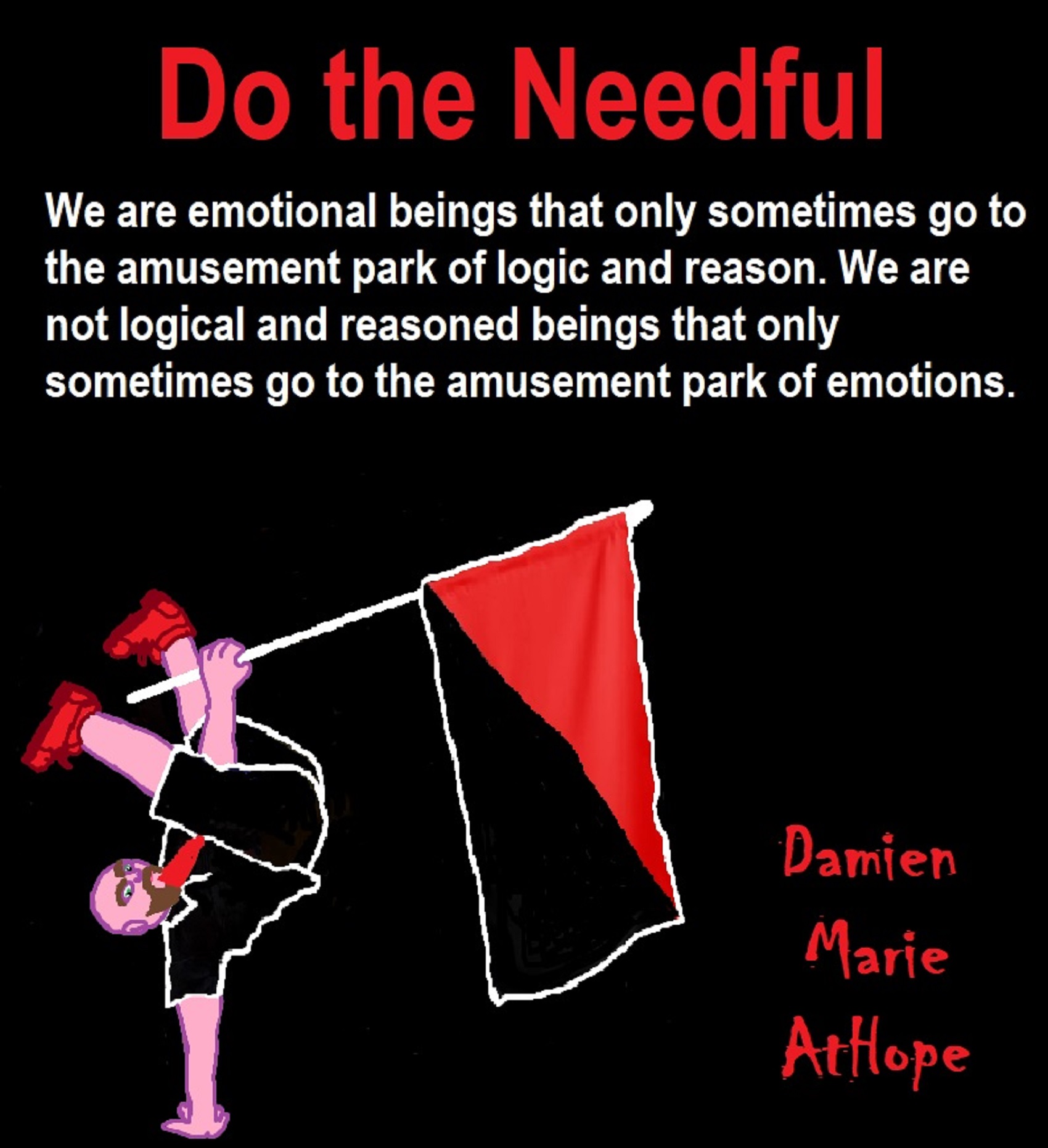
Categories and Versions of Humanism
HUMANISM: to me, is relatively the philosophic thinking that humans can solve human problems by human means, without feeling a need to appeal to the likes of holy books, mystical anything, nor the belief in gods or religions. But, instead, aspires to a true belief in humanity, viewing it with a persuasion of equality. This caring realist thinking found in humanism utilizes an unstated assumption or aspiration, to do no harm as much as posable and to do good whenever one can.
I am going to propose a few different categories and versions of humanism broke into connecting classes.
The first category is positive humanism or just humanism.
The second category is neutral humanism or relative/less positive humanism.
The third category is anti-humanism or negative humanism.
The three versions of humanism found in each categories are relatively the same but expressed in very different ways.
The first humanism is open to all humans religious or nonreligious humanism. (positive humanism)
The second is ideological humanism. Not connected to secularism or religion. (positive humanism, neutral humanism or relative/less positive humanism)
The third is secular humanism is open to those who are nontheistic and or nonreligious. (positive humanism)
Religious Humanism?
Religious relation to humanism can be thought of in three categories as well depending on use or nonuse by the religionist often motivated for or against depending how they express or experience their belief or religion.
The first positive humanism, can be a factor if the religionist sees humanism as part of their belief status or a religious requirement to be humanistic. (positive humanism)
The second neutral humanism, can be a factor if the religionist believes one is only required to be humanistic to those who follow, support or are not against their belief status or religion. (neutral humanism or relative/less positive humanism)
The third anti-humanism can be a factor if the religionist believes humans are only meaningful in the relationship to suit the needs of god(s) or religion. (anti-humanism or negative humanism)
- Talking with Jennifer (Shaw) Hancock (Humanist Educator) on Humanism, Atheism, Beliefs, and Morality
- What Inspires My Anarcho-Humanism?
- I am an Axiological Atheist, with a Rationalist Persuasion, who Supports Anarcho-Humanism
- My Atheistic (socialist-anarchist) Humanism?
- Anarcho-Humanism
- Skepticism and or Rationalism Leads to Humanism and Atheism?
- Easy Definition of Humanism?
- Confusions in Atheism and Humanism
- Atheistic Humanism?
- Categories and Versions of Humanism
- Let’s Discuss Humanism
- Positive Humanism

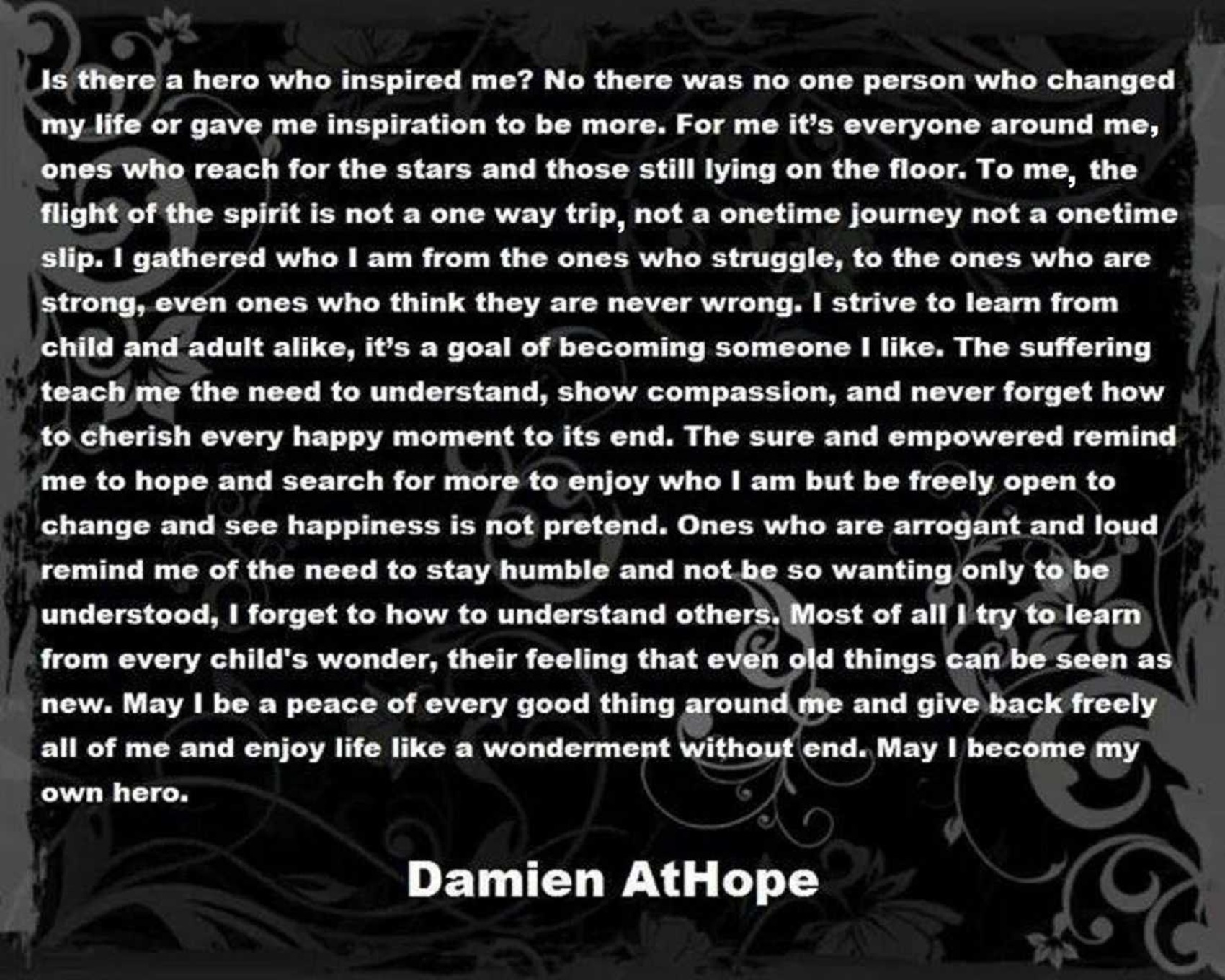
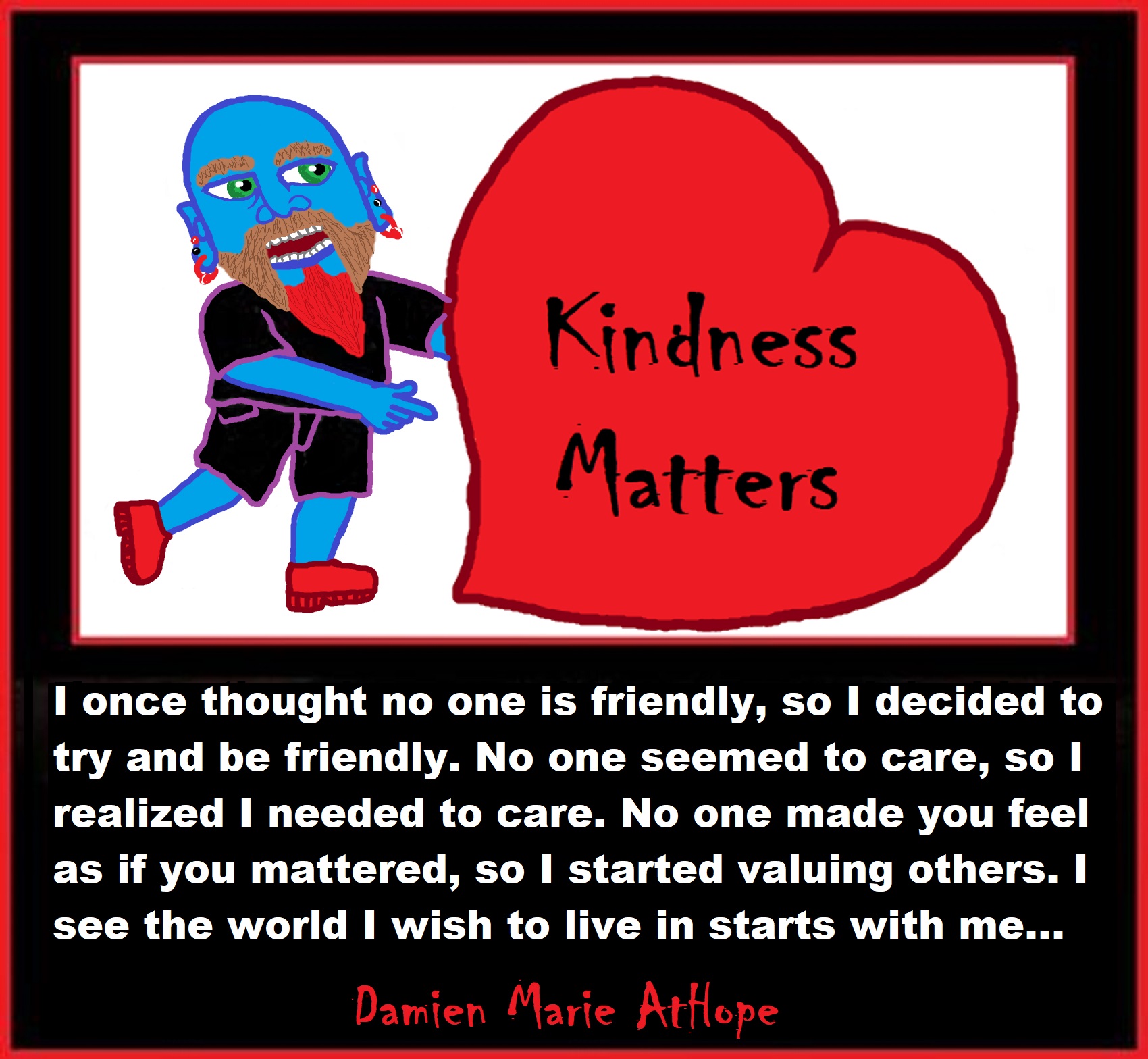
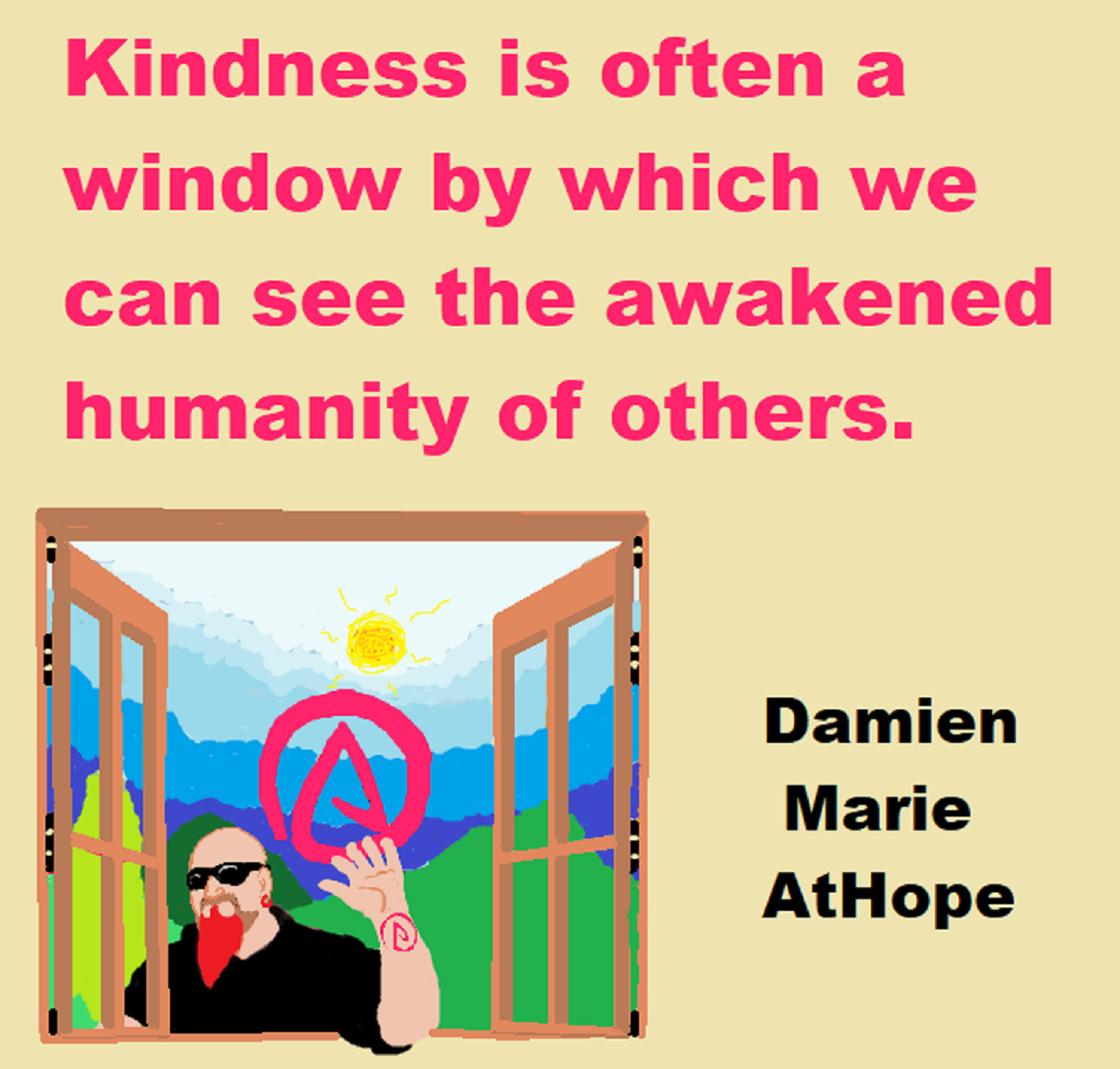
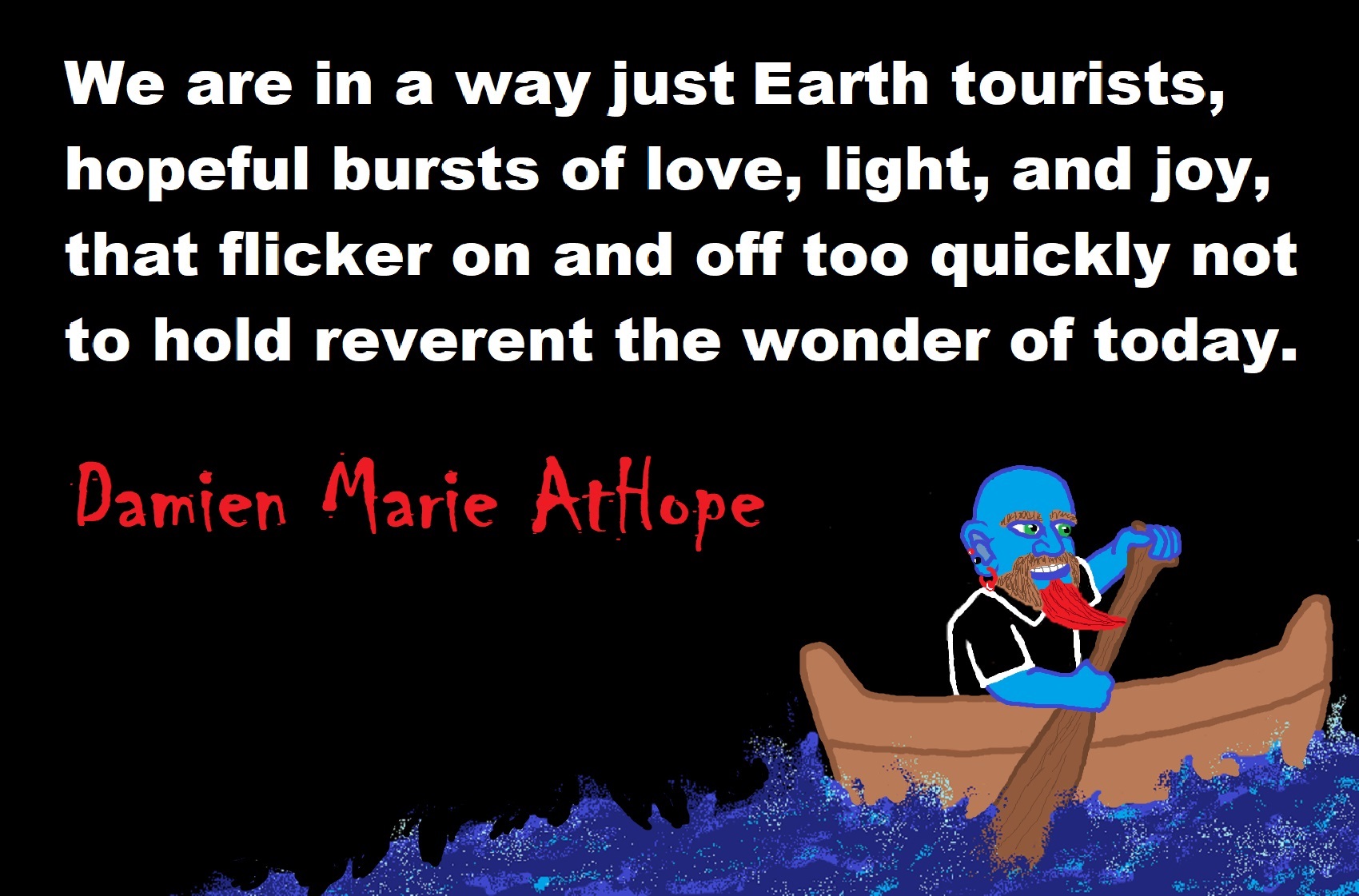
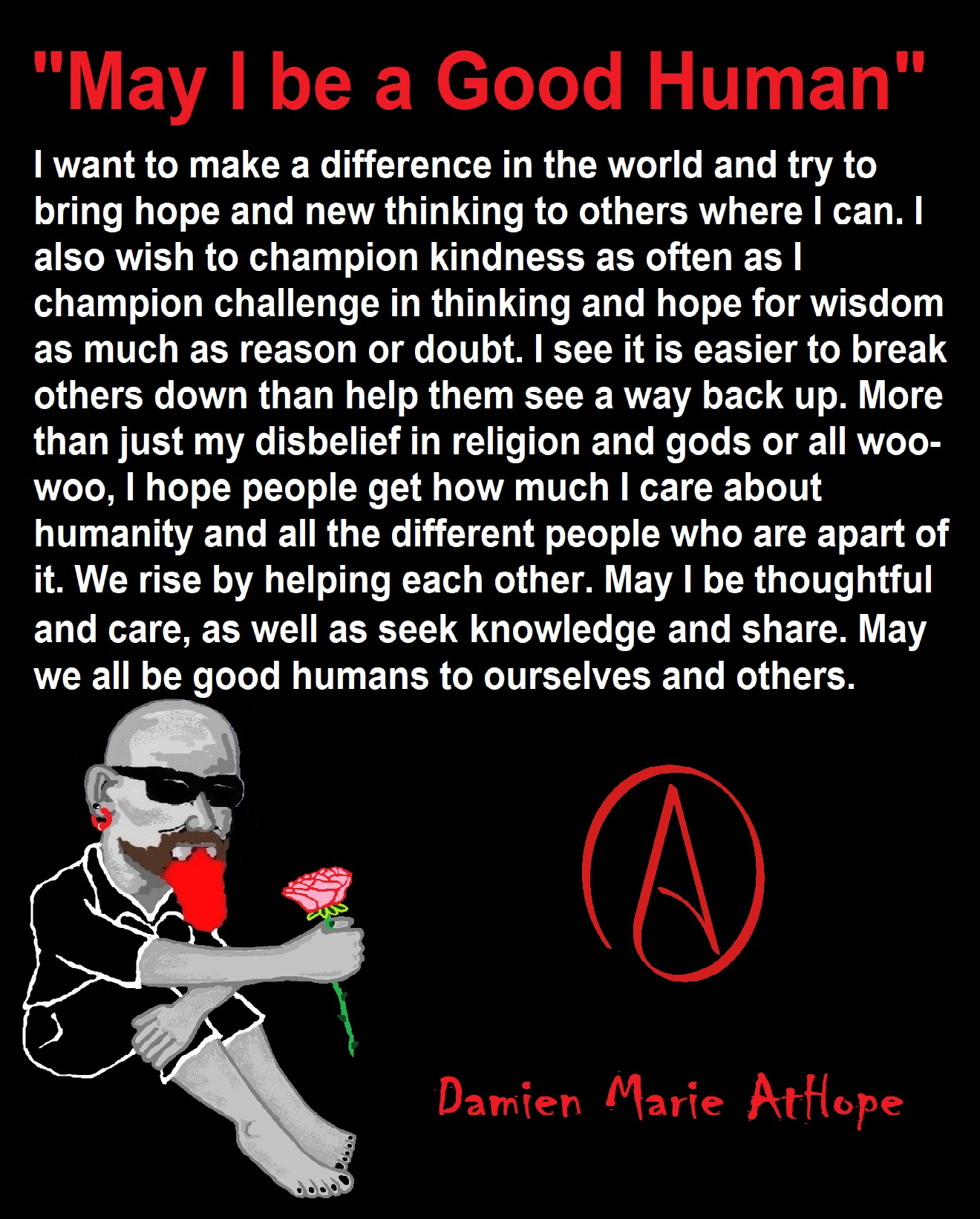
Humanism
“Humanism is a philosophical stance that emphasizes the potential and agency of human beings, individually and socially. It considers human beings as the starting point for serious moral and philosophical inquiry. The meaning of the term humanism has fluctuated according to the successive intellectual movements which have identified with it. Generally, however, humanism refers to a perspective that evolves around human wellbeing and advocates for human freedom, autonomy, and progress.” ref
“It views humanity as responsible for the promotion and development of individuals, espouses the equal and inherent dignity of all human beings, and emphasizes a concern for humans in relation to the world. In the 20th century and beyond, humanist movements are typically non-religious movements aligned with secularism, and today humanism may refer to a nontheistic life stance centered on human agency and looking to science and reason rather than revelation from a supernatural source to understand the world. Humanists tend to be strong advocates for Human Rights, free speech, progressive policies, and democracy. They maintain that religion is not a precondition to morality and object to religious involvement in education and the state apparatus. Humans, according to humanists, can shape their own values, and live a good and meaningful life.” ref
“The roots of humanism can be traced in ancient Greek philosophy, that prioritize on human morality. In other parts of ancient world, thought resonating humanistic though appeared also. It was in the Renaissance, that the interest in classical literature was renewed and humanistic ideas begun to evolve once again. Advances in science, technology, and philosophy during enlightenment fostered secular worldviews creating many rational and ethical associations and currents in the 19th century, that were merged in the 20th century to form secular humanist associations.” ref
“Humanism has been traditionally questioned on its metaphysics and relation to truth and freedom. Contemporary critiques claim that because of perpetuating biases humanism is a vehicle for continued oppression. The word “humanism” derived from the Latin concept humanitas, firstly used by Cicero to describe values related to liberal education, something like today’s arts, philosophy, history, literature . The word resurfaced during the Italian Renaissance as umanista reaching the English language in the sixteenth century. The world was not used as an -ism but as an -ist to describe a group of people studying and advocating education based on classical literature.” ref
“In the early 19th century, it was used in Germany as humanismus with various meanings and from there, it re-entered English language with two distinct denotations, one linked to the study of classic literature, that remained an academic term, while the other one was more popularized and signified a non religious approach to life, implying an antithesis to theism. Most probably, it was Bavarian theologian Friedrich Immanuel Niethammer who coined the term Humanismus to describe the new classical curriculum he planned to offer in German secondary schools. Soon, the world was adopted by other scholars such as Georg Voigt and Jacob Burckhardt. In the 20th century, the word was refined further reaching its contemporary meaning signifying a naturalistic approach to life, focusing on the wellbeing and freedom of humans.” ref
“Providing a definition of humanism is a difficult task, revealing the controversy surrounding humanism. One one hand, humanism is defined as a champion of human freedom and dignity, on the other, it is linked to oppression (via being a byproduct of modernity). In 1974, philosopher Sidney Hook defined humanism, or humanists by negative characteristics. Firstly, humanists are against imposition of one culture in various civilizations, do not belong to a church or established religion, neither do they support dictatorships, justify violence for social reforms or they are loyal to an organization more than their abstract values.” ref
“He also adds some positive characteristics, humanists are for eliminating hunger and improving health, housing and education. Also writing in 1974, for humanist philosopher H. J. Blackham is a concept focusing on improving the social conditions of humanity, increasing autonomy and dignity of all humans. More recently, in 1999, Jeaneane D. Fowler sees that definition of humanism should include both rejection of divinity and emphasis on human wellbeing and freedom. She also comments that there is a lack of commonly shared belief system or a doctrine, but in general, humanists are aiming for happiness and self-fulfillment.” ref
“In 2015, prominent humanist Andrew Copson, drew five lines in his attempt to capture the essence of humanism, as follows:
- Humanism is naturalistic in his understanding of the universe; science and free inquiry will help us comprehend more and more about what is surrounding us.
- This scientific approach does not reduce humans anything lesser than human beings.
- Humanists insist on the importance of pursuit of a self-defined meaningful and happy life.
- Humanism is moral with morality being a way of humans improving our lives.
- Humanists engage in practical action to improve personal and social condition.” ref
“The international organization of humanists defines it as “Humanism is a democratic and ethical life stance, which affirms that human beings have the right and responsibility to give meaning and shape to their own lives. It stands for the building of a more humane society through an ethic based on human and other natural values in the spirit of reason and free inquiry through human capabilities. It is not theistic, and it does not accept supernatural views of reality”. Dictionary definition place humanism as a worldview or life stance. According to Merriam Webster Dictionary humanism is “…a doctrine, attitude, or way of life centered on human interests or values; especially: a philosophy that usually rejects supernaturalism and stresses an individual’s dignity and worth and capacity for self-realization through reason.” ref
“Pre-Socratic Greek philosophers were the first western philosophers to first to attempt to explain the world in terms of human reason and laws within the nature, without escaping to myth, tradition or religion, thus can be said to be the first Greek humanists. Sixth-century BCE Thales of Miletus, along with the rest of Milesian school (his pupil Anaximander and Anaximenes) led this demythologization attempt and asserted that nature is available to be studied separately from the supernatural realm Another pre-socratic philosopher, Protagoras, who flourished in Athens at c. 440 BCE resonated some ideas fundamental to humanism. Only some fragments survive from his work. He made one of the first agnostic statements, according to one fragment: “About the gods I am able to know neither that they exist nor that they do not exist nor of what kind they are in form: for many things prevent me for knowing this, its obscurity and the brevity of man’s life. (80B4 DK)” ref
“While we are not familiar with the surrounding text, prof Mauro Bonazzi claims that seems that it was an attempt by Protagoras to distance religion from politics and a key concept in his radical humanism. Another well-debated axiom of Protagoras is that “man is the measure of all things”. While attacked for its moral relativism and inconsistency since the age of Plato, humanists pointed to placing humankind to the center of the universe while 20th-century philosopher Schiller, in defending Protagoras noted that by the word “man”, Protagoras refers to humankind rather than separate individuals. Worth noting that contemporary Humanism does not endorse moral relativism.” ref
“Socrates also spoke of the need to know thyself, changed the focus of the then philosophical currents from nature to human and his wellbeing. Socrates, being a theist but executed for atheism nonetheless, investigated the nature of morality by reasoning. Classical Greece philosopher Aristotle (384 -322 BCE) rationalism and his human nature-based ethicism also parallels humanist thought. In the 3rd century BCE, Epicurus formed an influential human-centred philosophy on achieving eudaimonia. Epicurians continued Democritus atomist theory- a materialistic theory that suggested that the fundamental unit of the universe was an indivisible atom. Human happiness, living well, friendship, and avoidance of excesses were the key ingrediencies of Epicurian philosophy that flourished in the post-Hellenic world and beyond.” ref
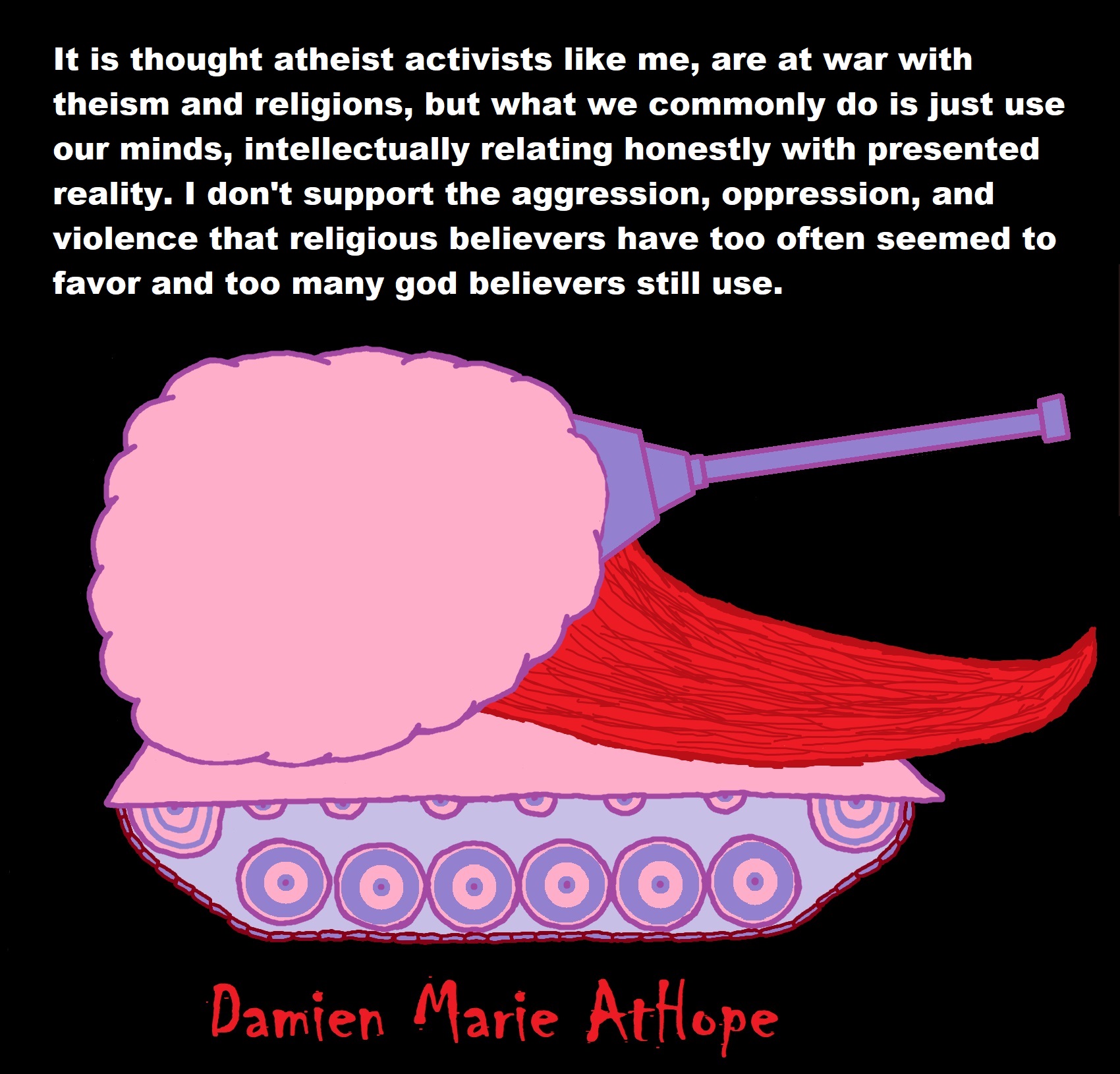
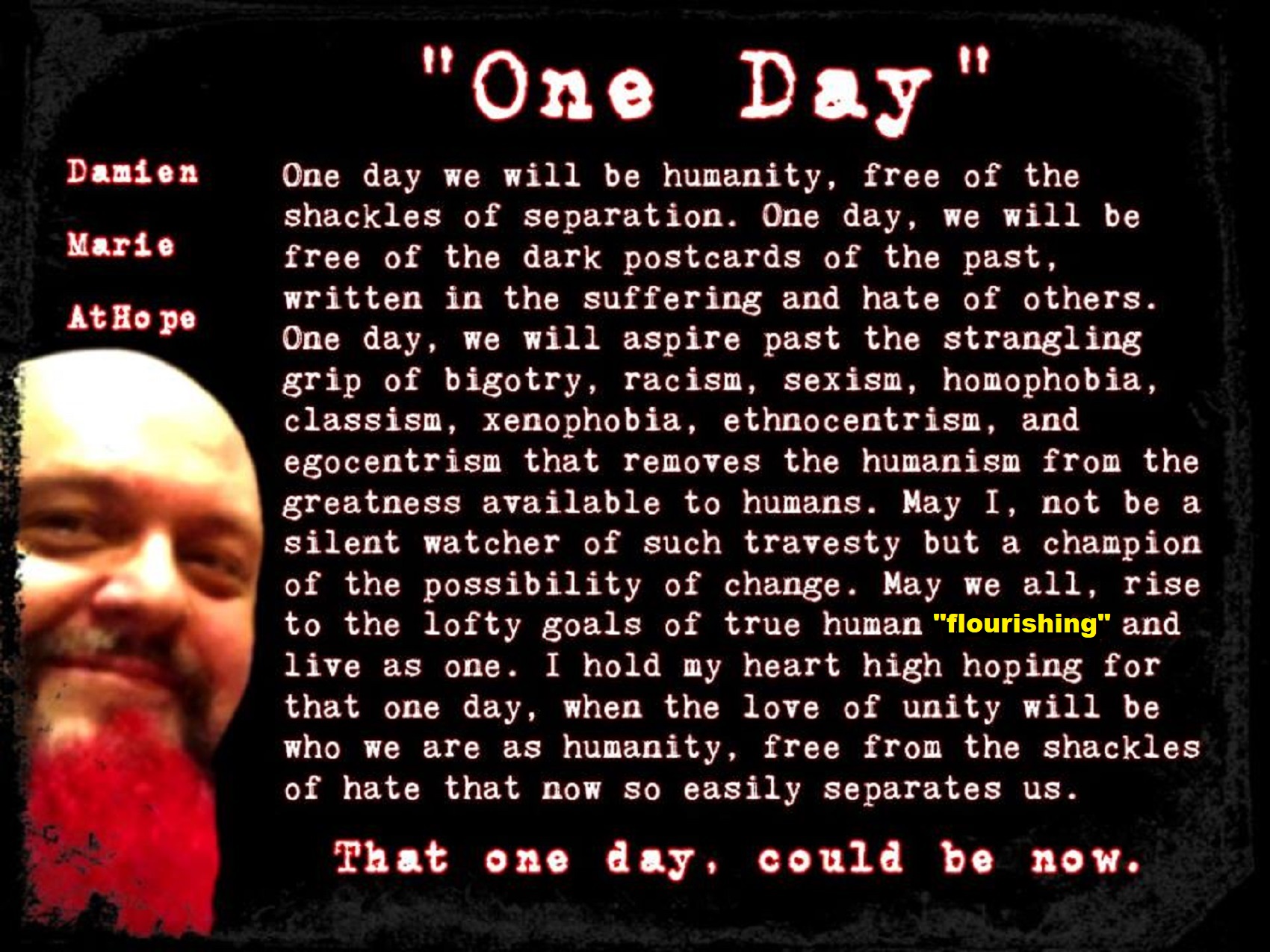
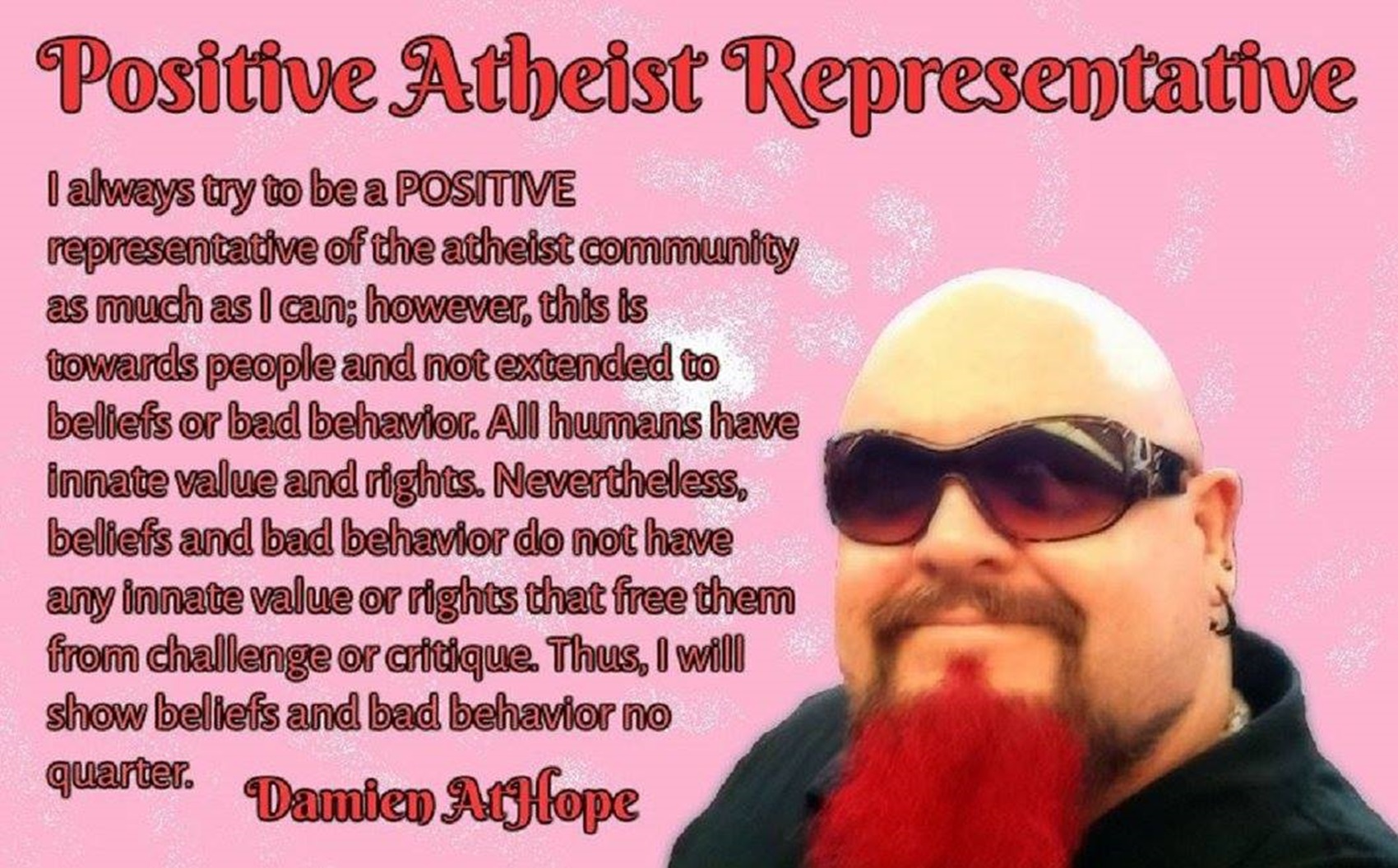
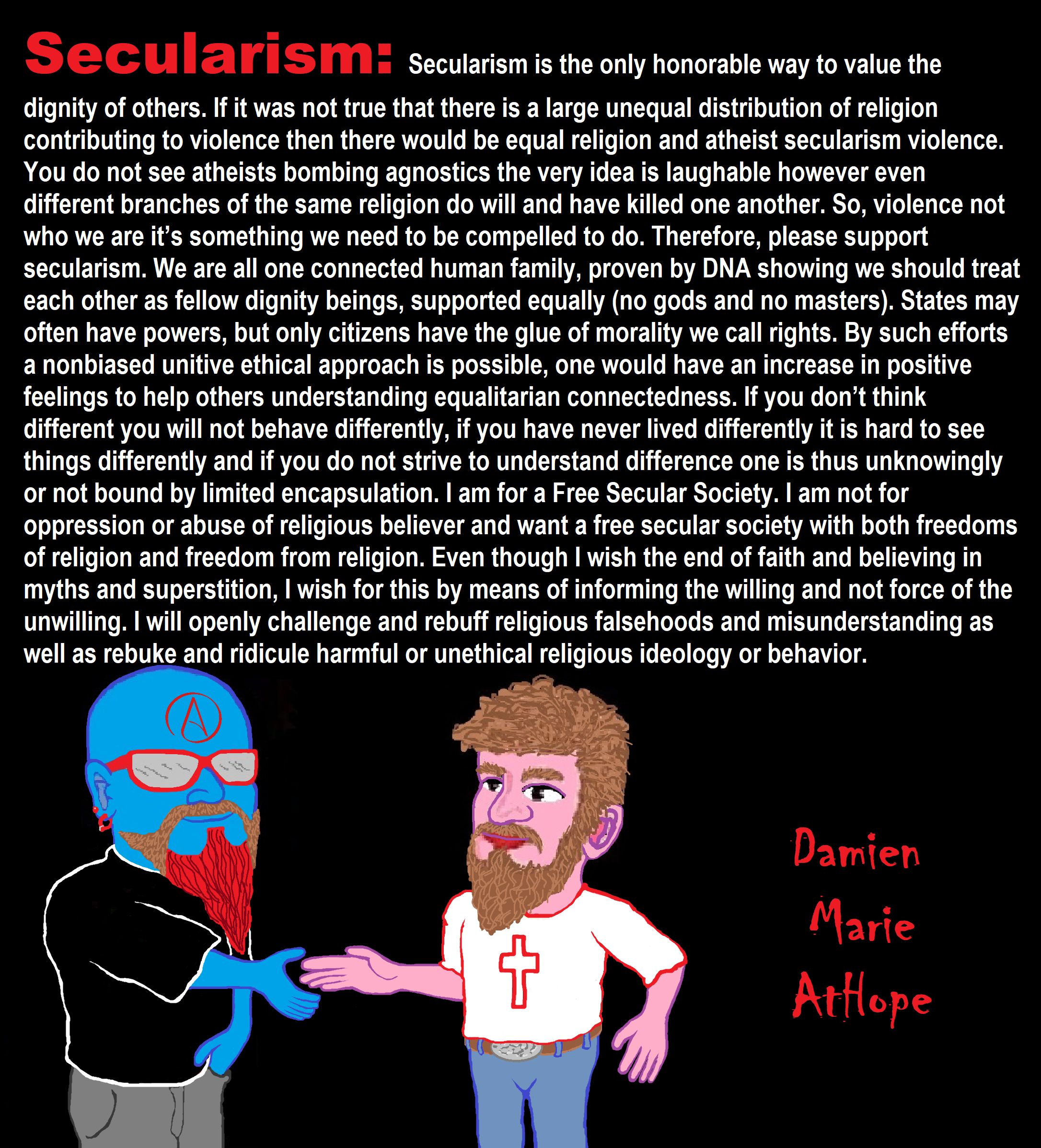
Secular Humanism
“Secular humanism, often simply called humanism, is a philosophy or life stance that embraces human reason, secular ethics, and philosophical naturalism while specifically rejecting religious dogma, supernaturalism, and superstition as the basis of morality and decision making. Secular humanism posits that human beings are capable of being ethical and moral without religion or belief in a deity. It does not, however, assume that humans are either inherently good or evil, nor does it present humans as being superior to nature.” ref
“Rather, the humanist life stance emphasizes the unique responsibility facing humanity and the ethical consequences of human decisions. Fundamental to the concept of secular humanism is the strongly held viewpoint that ideology—be it religious or political—must be thoroughly examined by each individual and not simply accepted or rejected on faith. Along with this, an essential part of secular humanism is a continually adapting search for truth, primarily through science and philosophy. Many secular humanists derive their moral codes from a philosophy of utilitarianism, ethical naturalism, or evolutionary ethics, and some advocate a science of morality.” ref
“Humanists International is the world union of more than one hundred humanist, rationalist, irreligious, atheist, Bright, secular, Ethical Culture, and freethought organizations in more than 40 countries. The “Happy Human” is recognized as the official symbol of humanism internationally, used by secular humanist organizations in every part of the world. Those who call themselves humanists are estimated to number between four and five million people worldwide.” ref
Anarcho-Humanism
Some anarchist thinkers seem to think if they join me as an anarcho-humanist that they must stop being the kind of socialism they prefer, but it does not work like that. We are all social anarchists, generally. All anarchist thinking is about that or not that as a common theme realized or not. Just like the socialist and capitalism debate. One is either pro-capitalism or not.
All social anarchist thinking is not pro-capitalism and most are very anti-capitalist. In this social anarchist thinking, you can choose from several different styles of socialist anarchist thinking as well as add social anarchist causes like green anarchist thinking. However, that doesn’t remove the socialist anarchist choice you already made, rather it just added a social justice cause with it.
So, again to make it clearer, you can be an anarchist-communist and a green anarchist as well as a feminist anarchist and a queen anarchist as well as an anarch-humanist. Because green, feminist, and humanist anarchism are not exclusive or limited they are like social characters of social anarchist thinking.
So you can be like me and still be like you.
People can be anarchist-humanists, green-anarchists, as well as feminist-anarchists, and yet hold different socialist anarchist thinking. Our socialist anarchist style does not mean we can’t see eye to eye on other things like humanism, feminism, or green environmental issues.
So, Join me in Anarcho-Humanism:
I Am an Atheist-Humanist Anarchist
“Hierarchy to me means oppression and brutality.”
States may often have powers, but only citizens have the glue of morality we call rights. And, as they say, in my “dream society”, lots of things are free (aka. planting free food everywhere, free to everyone); but I wonder what you mean when people say you can’t just let things be free, I think, yeah, how can I take free stuff from a free earth.
Anarcho-Humanism, to me, is atheistic humanism with an unconditional social awareness:
Anarcho (anarchism): “No Gods – No Masters”
Humanism: “No Harm – Do Good”
- Anarcho-Humanism: https://lnkd.in/gWKMM_c
- What Inspires My Anarcho-Humanism: https://lnkd.in/ggmnrDU
I am an Axiological Atheist, with a Rationalist Persuasion, who Supports Anarcho-Humanism.
My politics defined more:
I am a Socialist-Collectivist-Mutualist-Anarchist as well as an Anarcho-Humanist, Green/ECO-Anarchist, Anarcho-Naturalist, Queer-Anarchist, and Feminist-Anarchist.

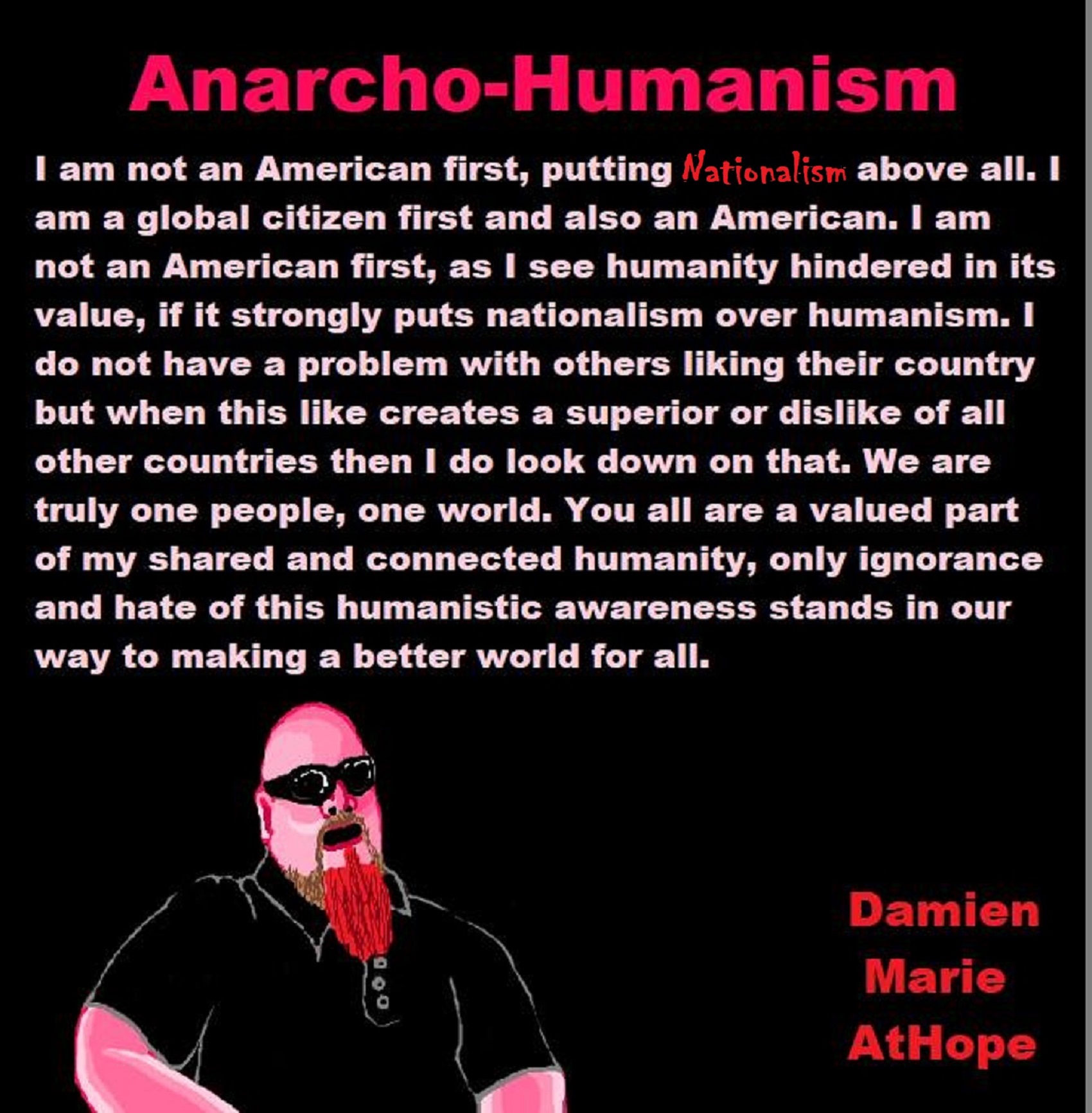

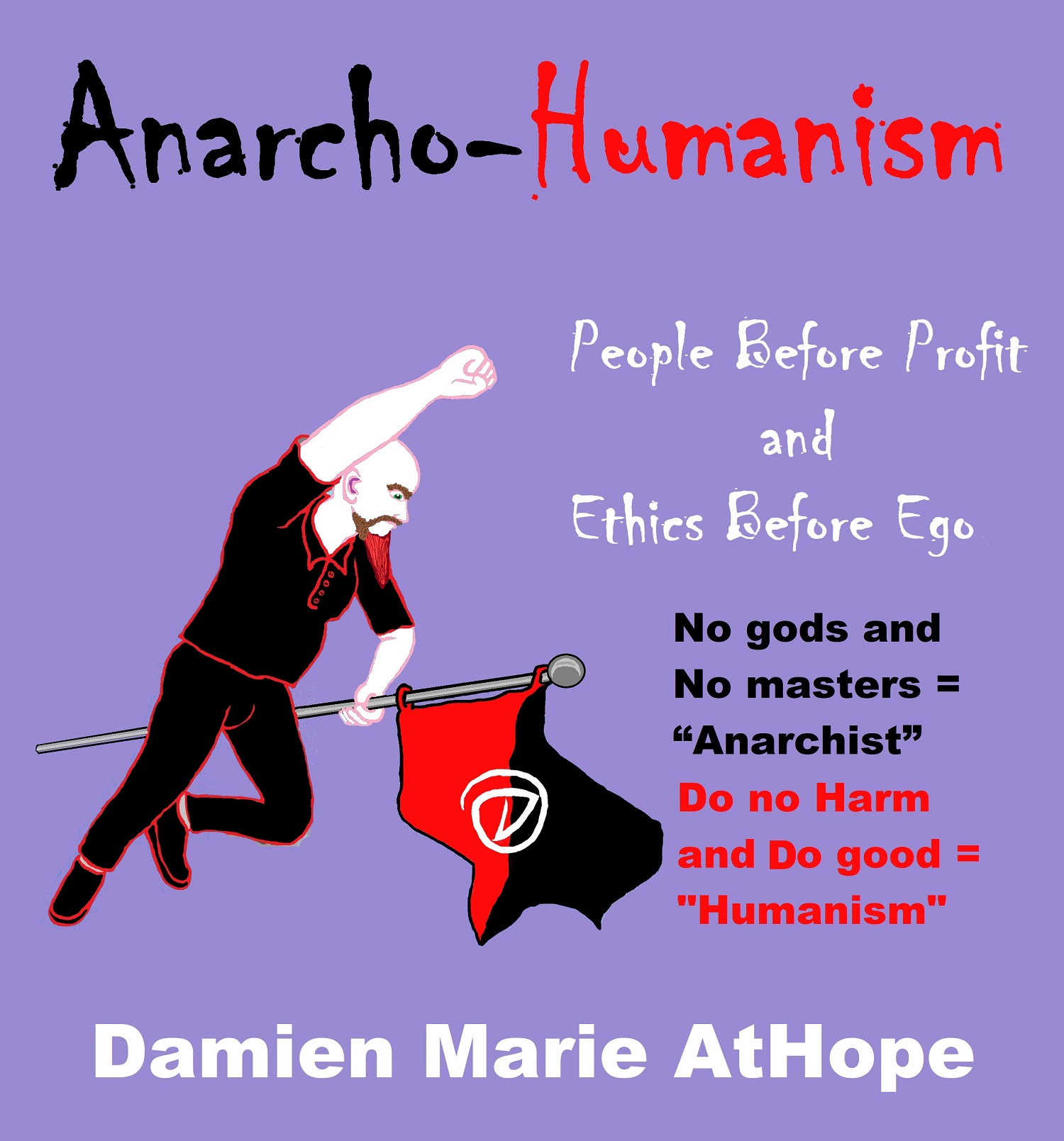
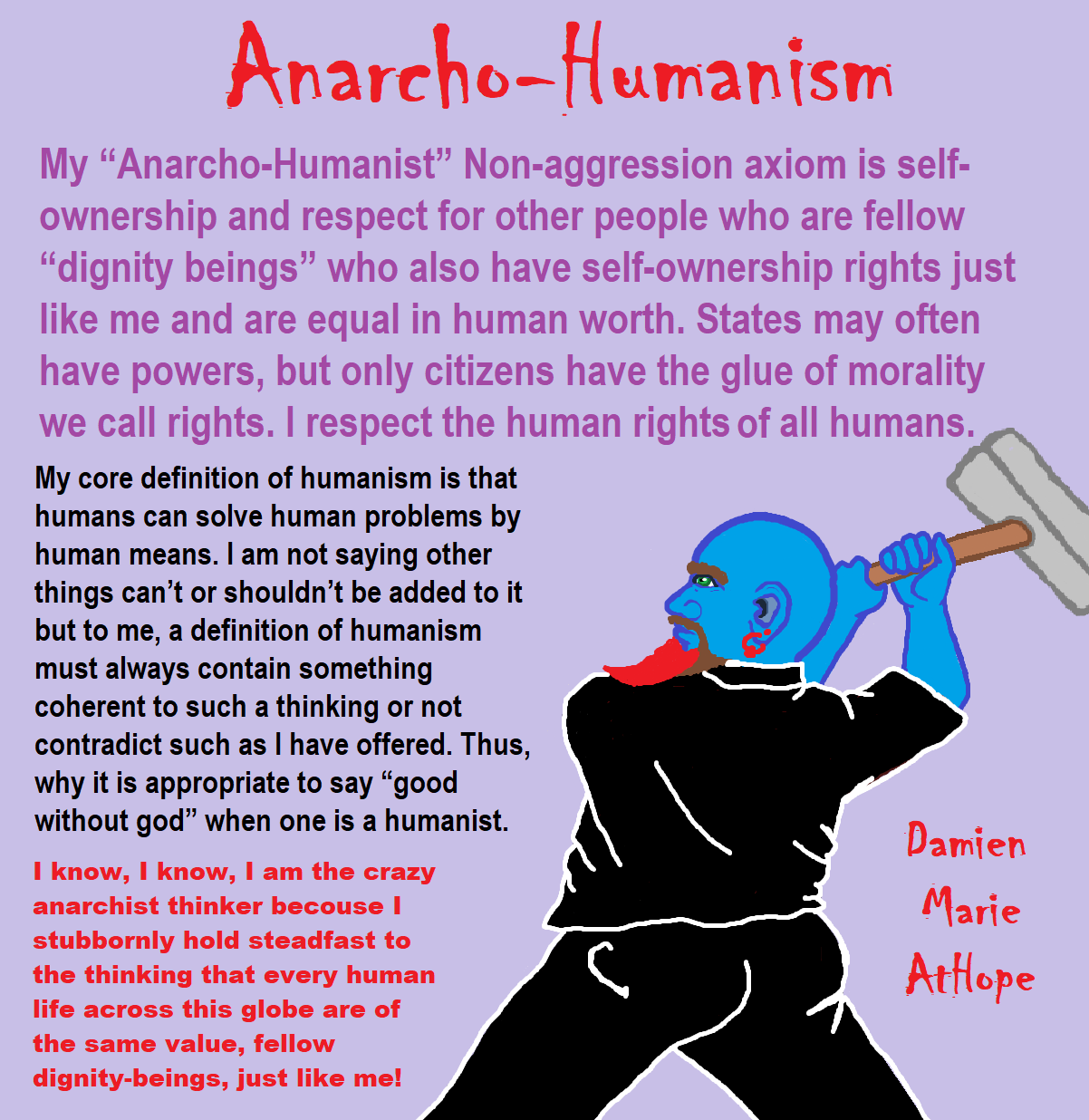


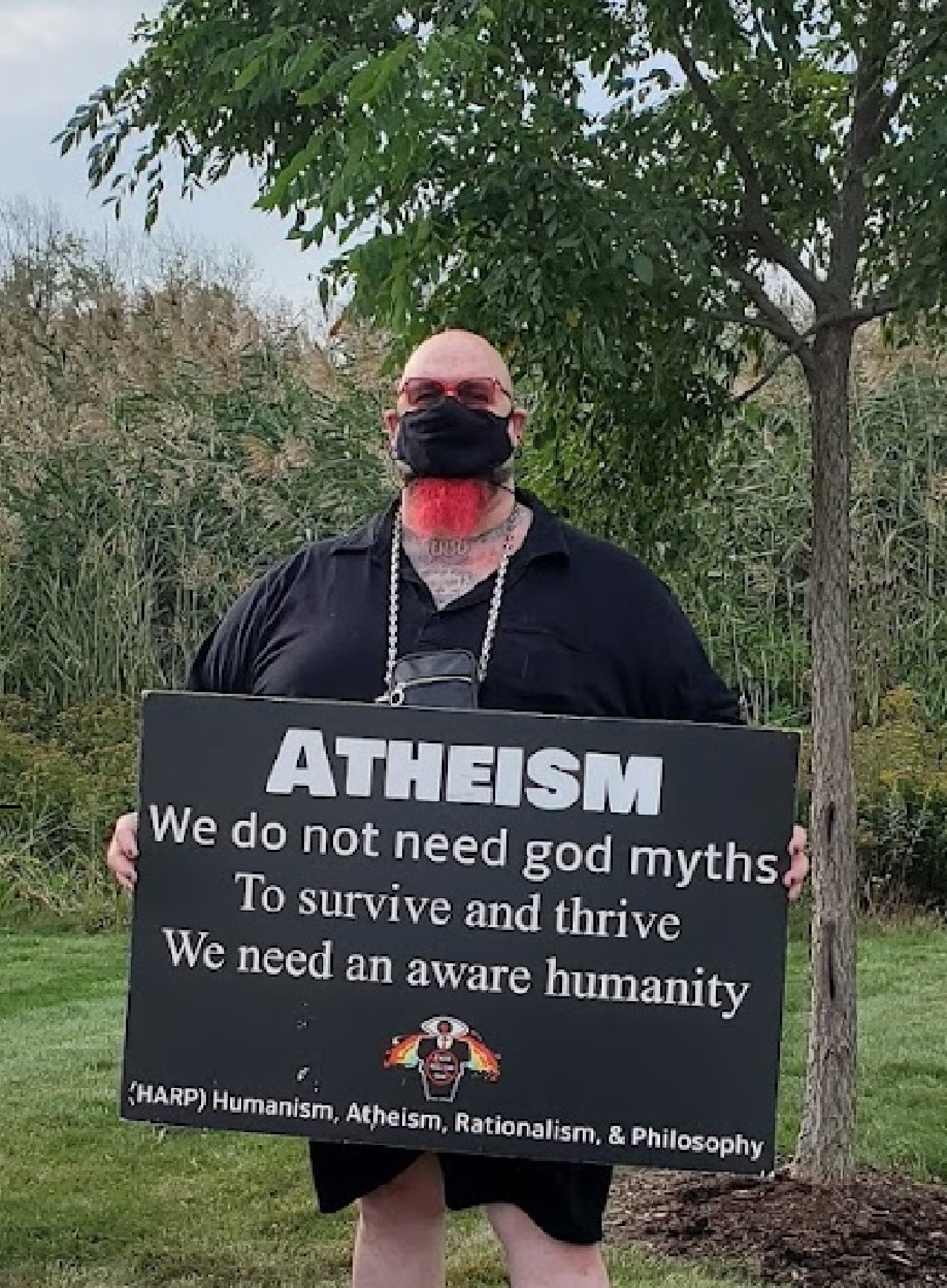
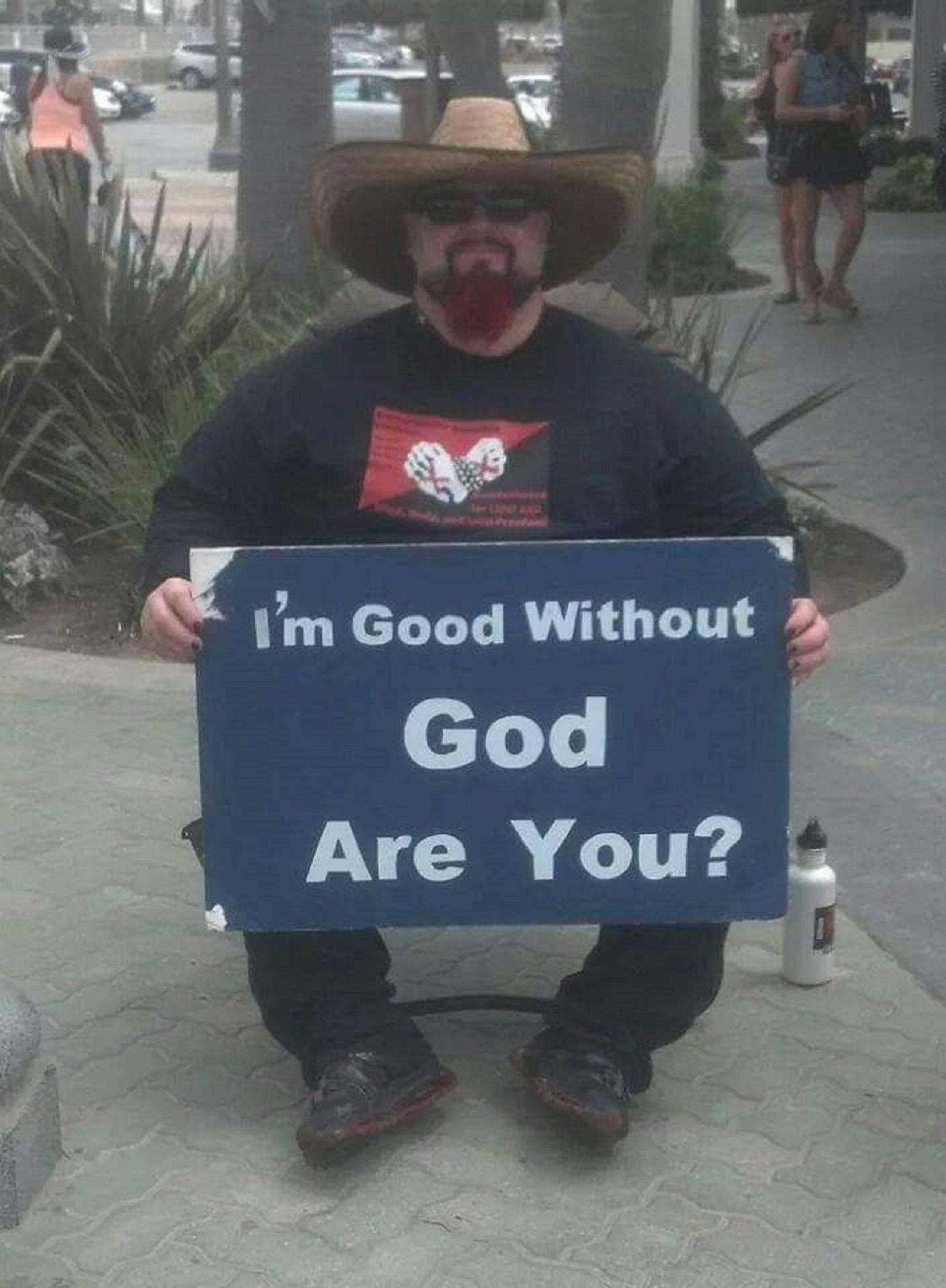

“Theists, there has to be a god, as something can not come from nothing.”
Well, thus something (unknown) happened and then there was something. This does not tell us what the something that may have been involved with something coming from nothing. A supposed first cause, thus something (unknown) happened and then there was something is not an open invitation to claim it as known, neither is it justified to call or label such an unknown as anything, especially an unsubstantiated magical thinking belief born of mythology and religious storytelling.

While hallucinogens are associated with shamanism, it is alcohol that is associated with paganism.
The Atheist-Humanist-Leftist Revolutionaries Shows in the prehistory series:
Show two: Pre-animism 300,000 years old and animism 100,000 years old: related to “Anarchism and Socialism”
Show tree: Totemism 50,000 years old: related to “Anarchism and Socialism”
Show four: Shamanism 30,000 years old: related to “Anarchism and Socialism”
Show five: Paganism 12,000 years old: related to “Anarchism and Socialism”
Show six: Emergence of hierarchy, sexism, slavery, and the new male god dominance: Paganism 7,000-5,000 years old: related to “Anarchism and Socialism” (Capitalism) (World War 0) Elite and their slaves!
Prehistory: related to “Anarchism and Socialism” the division of labor, power, rights, and recourses: VIDEO
Pre-animism 300,000 years old and animism 100,000 years old: related to “Anarchism and Socialism”: VIDEO
Totemism 50,000 years old: related to “Anarchism and Socialism”: VIDEO
Shamanism 30,000 years old: related to “Anarchism and Socialism”: VIDEO
Paganism 12,000 years old: related to “Anarchism and Socialism” (Pre-Capitalism): VIDEO
Paganism 7,000-5,000 years old: related to “Anarchism and Socialism” (Capitalism) (World War 0) Elite and their slaves: VIEDO
Paganism 5,000 years old: progressed organized religion and the state: related to “Anarchism and Socialism” (Kings and the Rise of the State): VIEDO
Paganism 4,000 years old: related to “Anarchism and Socialism” (First Moralistic gods, then the Origin time of Monotheism): VIEDO
I do not hate simply because I challenge and expose myths or lies any more than others being thought of as loving simply because of the protection and hiding from challenge their favored myths or lies.
The truth is best championed in the sunlight of challenge.
An archaeologist once said to me “Damien religion and culture are very different”
My response, So are you saying that was always that way, such as would you say Native Americans’ cultures are separate from their religions? And do you think it always was the way you believe?
I had said that religion was a cultural product. That is still how I see it and there are other archaeologists that think close to me as well. Gods too are the myths of cultures that did not understand science or the world around them, seeing magic/supernatural everywhere.
I personally think there is a goddess and not enough evidence to support a male god at Çatalhöyük but if there was both a male and female god and goddess then I know the kind of gods they were like Proto-Indo-European mythology.
This series idea was addressed in, Anarchist Teaching as Free Public Education or Free Education in the Public: VIDEO
Our 12 video series: Organized Oppression: Mesopotamian State Force and the Politics of power (9,000-4,000 years ago), is adapted from: The Complete and Concise History of the Sumerians and Early Bronze Age Mesopotamia (7000-2000 BC): https://www.youtube.com/watch?v=szFjxmY7jQA by “History with Cy“
Show #1: Mesopotamian State Force and the Politics of Power (Samarra, Halaf, Ubaid)
Show #2: Mesopotamian State Force and the Politics of Power
Show #3: Mesopotamian State Force and the Politics of Power (Uruk and the First Cities)
Show #4: Mesopotamian State Force and the Politics of Power (First Kings)
Show #5: Mesopotamian State Force and the Politics of Power (Early Dynastic Period)
Show #6: Mesopotamian State Force and the Politics of Power
Show #7: Mesopotamian State Force and the Politics of Power (Sargon and Akkadian Rule)
Show #9: Mesopotamian State Force and the Politics of Power (Gudea of Lagash and Utu-hegal)
Show #12: Mesopotamian State Force and the Politics of Power (Aftermath and Legacy of Sumer)

The “Atheist-Humanist-Leftist Revolutionaries”
Cory Johnston ☭ Ⓐ Atheist Leftist @Skepticallefty & I (Damien Marie AtHope) @AthopeMarie (my YouTube & related blog) are working jointly in atheist, antitheist, antireligionist, antifascist, anarchist, socialist, and humanist endeavors in our videos together, generally, every other Saturday.
Why Does Power Bring Responsibility?
Think, how often is it the powerless that start wars, oppress others, or commit genocide? So, I guess the question is to us all, to ask, how can power not carry responsibility in a humanity concept? I know I see the deep ethical responsibility that if there is power their must be a humanistic responsibility of ethical and empathic stewardship of that power. Will I be brave enough to be kind? Will I possess enough courage to be compassionate? Will my valor reach its height of empathy? I as everyone, earns our justified respect by our actions, that are good, ethical, just, protecting, and kind. Do I have enough self-respect to put my love for humanity’s flushing, over being brought down by some of its bad actors? May we all be the ones doing good actions in the world, to help human flourishing.
I create the world I want to live in, striving for flourishing. Which is not a place but a positive potential involvement and promotion; a life of humanist goal precision. To master oneself, also means mastering positive prosocial behaviors needed for human flourishing. I may have lost a god myth as an atheist, but I am happy to tell you, my friend, it is exactly because of that, leaving the mental terrorizer, god belief, that I truly regained my connected ethical as well as kind humanity.
Cory and I will talk about prehistory and theism, addressing the relevance to atheism, anarchism, and socialism.
At the same time as the rise of the male god, 7,000 years ago, there was also the very time there was the rise of violence, war, and clans to kingdoms, then empires, then states. It is all connected back to 7,000 years ago, and it moved across the world.
Cory Johnston: https://damienmarieathope.com/2021/04/cory-johnston-mind-of-a-skeptical-leftist/?v=32aec8db952d
The Mind of a Skeptical Leftist (YouTube)
Cory Johnston: Mind of a Skeptical Leftist @Skepticallefty
The Mind of a Skeptical Leftist By Cory Johnston: “Promoting critical thinking, social justice, and left-wing politics by covering current events and talking to a variety of people. Cory Johnston has been thoughtfully talking to people and attempting to promote critical thinking, social justice, and left-wing politics.” http://anchor.fm/skepticalleft
Cory needs our support. We rise by helping each other.
Cory Johnston ☭ Ⓐ @Skepticallefty Evidence-based atheist leftist (he/him) Producer, host, and co-host of 4 podcasts @skeptarchy @skpoliticspod and @AthopeMarie
Damien Marie AtHope (“At Hope”) Axiological Atheist, Anti-theist, Anti-religionist, Secular Humanist. Rationalist, Writer, Artist, Poet, Philosopher, Advocate, Activist, Psychology, and Armchair Archaeology/Anthropology/Historian.
Damien is interested in: Freedom, Liberty, Justice, Equality, Ethics, Humanism, Science, Atheism, Antiteism, Antireligionism, Ignosticism, Left-Libertarianism, Anarchism, Socialism, Mutualism, Axiology, Metaphysics, LGBTQI, Philosophy, Advocacy, Activism, Mental Health, Psychology, Archaeology, Social Work, Sexual Rights, Marriage Rights, Woman’s Rights, Gender Rights, Child Rights, Secular Rights, Race Equality, Ageism/Disability Equality, Etc. And a far-leftist, “Anarcho-Humanist.”
I am not a good fit in the atheist movement that is mostly pro-capitalist, I am anti-capitalist. Mostly pro-skeptic, I am a rationalist not valuing skepticism. Mostly pro-agnostic, I am anti-agnostic. Mostly limited to anti-Abrahamic religions, I am an anti-religionist.
To me, the “male god” seems to have either emerged or become prominent around 7,000 years ago, whereas the now favored monotheism “male god” is more like 4,000 years ago or so. To me, the “female goddess” seems to have either emerged or become prominent around 11,000-10,000 years ago or so, losing the majority of its once prominence around 2,000 years ago due largely to the now favored monotheism “male god” that grow in prominence after 4,000 years ago or so.
My Thought on the Evolution of Gods?
Animal protector deities from old totems/spirit animal beliefs come first to me, 13,000/12,000 years ago, then women as deities 11,000/10,000 years ago, then male gods around 7,000/8,000 years ago. Moralistic gods around 5,000/4,000 years ago, and monotheistic gods around 4,000/3,000 years ago.
To me, animal gods were likely first related to totemism animals around 13,000 to 12,000 years ago or older. Female as goddesses was next to me, 11,000 to 10,000 years ago or so with the emergence of agriculture. Then male gods come about 8,000 to 7,000 years ago with clan wars. Many monotheism-themed religions started in henotheism, emerging out of polytheism/paganism.

Damien Marie AtHope (Said as “At” “Hope”)/(Autodidact Polymath but not good at math):
Axiological Atheist, Anti-theist, Anti-religionist, Secular Humanist, Rationalist, Writer, Artist, Jeweler, Poet, “autodidact” Philosopher, schooled in Psychology, and “autodidact” Armchair Archaeology/Anthropology/Pre-Historian (Knowledgeable in the range of: 1 million to 5,000/4,000 years ago). I am an anarchist socialist politically. Reasons for or Types of Atheism
My Website, My Blog, & Short-writing or Quotes, My YouTube, Twitter: @AthopeMarie, and My Email: damien.marie.athope@gmail.com



